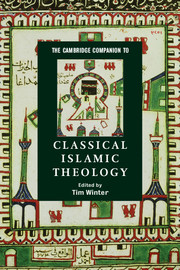6 - God: essence and attributes
from Part II: - Themes
Published online by Cambridge University Press: 28 June 2008
Summary
GENERAL BACKGROUND
The question of God's essence (dhāt) and attributes (sifāt) confronted Muslim scholars with perplexing paradoxes touching on the divine unity (tawhīd) and transcendence (tanzīh).
Since the earliest decades of Islamic speculation, in the seventh and eighth centuries, the question of God's essence and attributes constituted one of the axial themes of the scriptural exegesis and hermeneutics that influenced the unfolding of Islamic thought. This was most manifestly the case with the sharp disputes that arose between Mu'tazilism and Hanbalism, which later led to the emergence of Ash'arī kalām and its subsequent debates with the Peripatetic philosophers, paradigmatically culminating in Ghazelī's critique of Avicenna.
The essence-attributes question reflected the variant dimensions of scriptural interpretation and its grounding theories of meaning. According to heresiographic accounts, it was the distinction claimed between the exoteric, apparent (zāhir) meaning of scripture, and its esoteric, hidden (bātin) sense which generated extremist doctrinal positions, most emblematically the anthropomorphists (mushabbiha) and corporealists (mujassima) at one extreme, ranged against various esotericists (bātiniyya) on the other.
From an abstractive philosophical standpoint, the question of God's essence and attributes points to the dialectical concepts of unity/multiplicity, identity/difference, or sameness/otherness that had constituted universal categories of analysis in the intellectual history of a variety of doctrines from the time of the ancient Greeks, and which continued in the work of modern thinkers of the calibre of Hegel, Heidegger and Levinas.
- Type
- Chapter
- Information
- The Cambridge Companion to Classical Islamic Theology , pp. 121 - 140Publisher: Cambridge University PressPrint publication year: 2008
- 13
- Cited by

